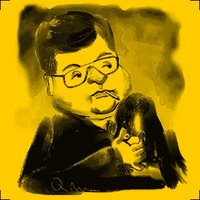 Former Ukrainian Prime Minister Pavel Lazarenko was sentenced to nine years' imprisonment by a Federal Court in San Fransisco on Friday, Washington Post reports. Lazarenko was found guilty of corruption, money laundering, fraud and extortion, and also received a $10 million fine in addition to the jail sentence.
Former Ukrainian Prime Minister Pavel Lazarenko was sentenced to nine years' imprisonment by a Federal Court in San Fransisco on Friday, Washington Post reports. Lazarenko was found guilty of corruption, money laundering, fraud and extortion, and also received a $10 million fine in addition to the jail sentence.Pavel Lazarenko was Prime Minister of Ukraine from 1996 to 1997 and became infamous for using his office to serve his own economic interests. The bulk of his multimillion corruption proceeds ended up in Swiss, US and offshore bank accounts. The victim of Lazarenko's crimes was the Ukrainian people, who at the time struggled for daily survival after the post-soviet economic collapse.
Lazarenko was appointed Prime Minister of Ukraine in May 1996, although his appointment was never considered by the Ukrainian parliament - the Verkhovna Rada. Controlling decisions on many lucrative business projects, Lazarenko is said to have demanded 50% of profits from businesses favoured by him. Lazarenko at the time had close political and economic ties with current Ukrainian politicians of prominence such as Yulia Timoshenko and Socialist leader Oleksandr Moroz.
In 1999, Lazarenko fled the Ukraine, awaiting a parliamentary decision to waive his parliamentary immunity. Within days of his escape, he was arrested in the United States and spent four years in custody pending trial, until his release on a $68 million bail in 2003. A year later he was found guilty on 29 out of 53 charges concerning money laundering, fraud and extortion, but the judge eventually dropped a majority of them, reducing the list to 14 offences. Despite being released on bail, Lazarenko was subject to house arrest until his final verdict on Friday. The former Ukrainian PM has already declared that he intends to appeal the verdict.
Throughout the trial, Lazarenko's defence has maintained his innocence and challenged US legal authority to alleged crimes not committed in the United States. Lazarenko has argued that his business transactions were normal to the prevailing conditions in the Ukraine in the 1990s. He thus claims that it was generally accepted for a Ukrainian politician to earn millions on the side in these years, and that such business formed a natural part of the transformation from soviet command economy to a liberal market economy.
In 2000, Ukraine sought Lazarenko's extradition. The charges brought against him by the Ukrainain Prosecutor General included, beside economic crimes, the instigation of two murders and several assassination attempts on high-ranking officials. The US, however, denied extradition on the grounds that Lazarenko was tried for crimes in the United States.
US federal prosecutors are far from satisfied with Friday's verdict. They had initially sought an 18 year prison term and confiscation of and fines to a total of $66 million. US authorities have claimed that Lazarenko transferred $118 million to US banks alone. Still, the sentence constitutes a milestone in the US battle against international crime. Lazarenko becomes the first former state leader to receive a US prison sentence after Manuel Noriega of Panama. Also, the Ukrainian people may give up a sigh of relief that at least one of their corrupt leaders now is punished for his crimes although by the United States and not by Ukraine itself.




No comments:
Post a Comment